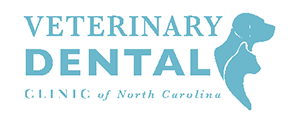Services
Dental health matters.
Our mission is to provide advanced dental services and oral surgery to pets in need and to educate providers on the latest advances in veterinary dentistry.

Pediatric Dentistry
Puppies and kittens erupt their deciduous (baby) teeth during their first few weeks of life. One of the best things you can do to keep your pet’s mouth healthy is to train your pet to accept tooth brushing from an early age. Occasionally, puppies and kittens will develop dental problems like a malocclusion or persistent deciduous teeth (baby teeth that do not fall out when they should). This can be delicate work in a small, rapidly developing mouth, and Dr. Hoover has the experience and training to give your pet’s teeth the best start possible.

Periodontics
Periodontal disease is nearly universal in dogs and cats, with 80% of dogs and cats being affected by the age of 3 years old. We offer advanced treatment options for strategic teeth and comprehensive dental care including full mouth extractions if needed.

Endodontics
When the pulp (blood supply and nerve) of a tooth is exposed by a fracture, the tooth will become infected and die. To prevent potential discomfort and inflammation, these teeth need to be either extracted or treated with root canal therapy. Root canal therapy involves cleaning, shaping, disinfecting and filling the inside of a dead or fractured tooth, then restoring the fracture site with a tooth-colored composite. Dr. Hoover has the extensive training and specialized equipment to properly perform endodontic therapy, including both standard and surgical root canal therapy as well as vital pulp therapy.

Exodontics (Extractions)
The three most common reasons why a tooth may need extraction are periodontal disease, fractures exposing the pulp (blood supply and nerve), and tooth resorption. Intra-oral dental radiographs are essential for performing extractions safely—we take dental radiographs both before extraction to determine the severity and complexity of the problem as well as afterward, to ensure that no roots or root fragments are left behind.

Oral Surgery
Oral surgery is best treatment for many oral cancers. VDCNC offers oral biopsies and surgical removal of the most common types of oral tumors.

Orthodontics
Our pets don’t need a perfect occlusion, but they do deserve one that is healthy and comfortable. Malocclusions can cause both soft tissue trauma as well as significant damage to teeth. Dr. Hoover will consult on any occlusion problems your pet may be experiencing and can help guide you in the most appropriate treatment for their condition. The VDCNC offers several options for treatment of malocclusion, including interceptive orthodontics (selective extraction of teeth that may be causing problems), crown reduction with vital pulp therapy, and orthodontic movement of teeth.

Mandibular Fracture Repair
A fractured jaw is a serious problem and needs to be treated with skill and expertise. One of the challenges with repairing a fractured jaw is avoiding any damage to the remaining teeth—Dr. Hoover has the specialized training and equipment to get your pet feeling better quickly.

Prosthodontics
Root canal therapy alone sometimes isn’t enough to protect a tooth from further damage. Some patients do benefit from extra protection in the form of crown therapy–they may be a working dog, or simply a pup that is prone to finding inappropriate chew toys. At the Veterinary Dental Clinic of North Carolina, we are pleased to offer both full crowns (caps) and three-quarter crowns (to protect the back of a tooth from cage/fence/crate chewing).

Restorative Dentistry
